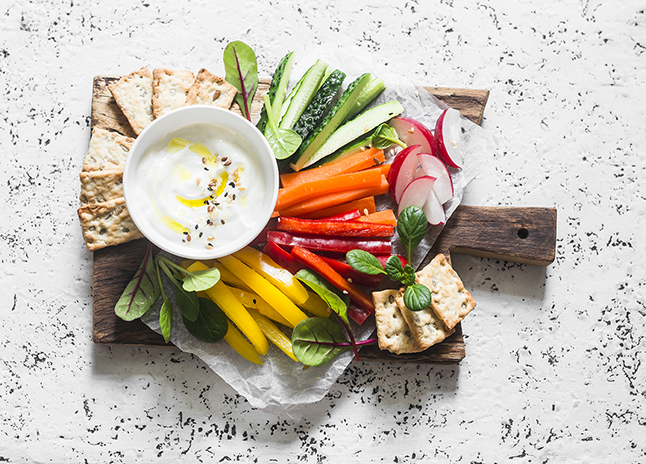Did you know that Canadian adults consume almost a quarter of their daily calories between meals? This significant source of energy could prove interesting if only it were derived from good quality food. Unfortunately, 40% of the food ingested between meals consists of junk food, including soft drinks, cookies and other similar items.
Should everyone snack?
Most people experience hunger and low energy levels between meals, so it’s a good idea to snack. Also, some people, such as athletes, pregnant women, teenagers and children, benefit from eating between meals to meet their higher energy needs. For seniors, snacks are convenient, especially if they aren’t very hungry at mealtime. However, snacks aren’t a requirement! Some people function very well only with three meals a day. So, if you’re healthy and don’t feel the need to snack, don’t force yourself to eat between meals.
Benefits of snacking
Eating one or more snacks every day won’t become a bad habit as long as the foods you select are nutritious and consumed when your body needs to recharge. Eating a healthy snack helps meet daily nutritional needs, optimizes energy levels, prevents fatigue between meals and acts as “fuel” before, during and after a workout. It also tames your hunger so that you’re less hungry a mealtime and eat more slowly and less overall.
Best snack options
If you’re looking to snack because you feel just a bit hungry on the job or at school, carbohydrates (e.g., crudités, fruit) should be enough. However, if you need more energy, pair a carbohydrate with a protein source (e.g., cheese, nuts, seeds).
Here are some winning carbohydrate and protein combinations:
- Carrot sticks + plain Greek yogurt and pesto dip
- Banana + nut butter
- Raw vegetables + roasted unsalted soybeans
- Dried fruit + almonds
- Bell pepper strips + hardboiled egg
- Homemade muffin + glass of milk or fortified soy beverage
- Grapes + cheese


